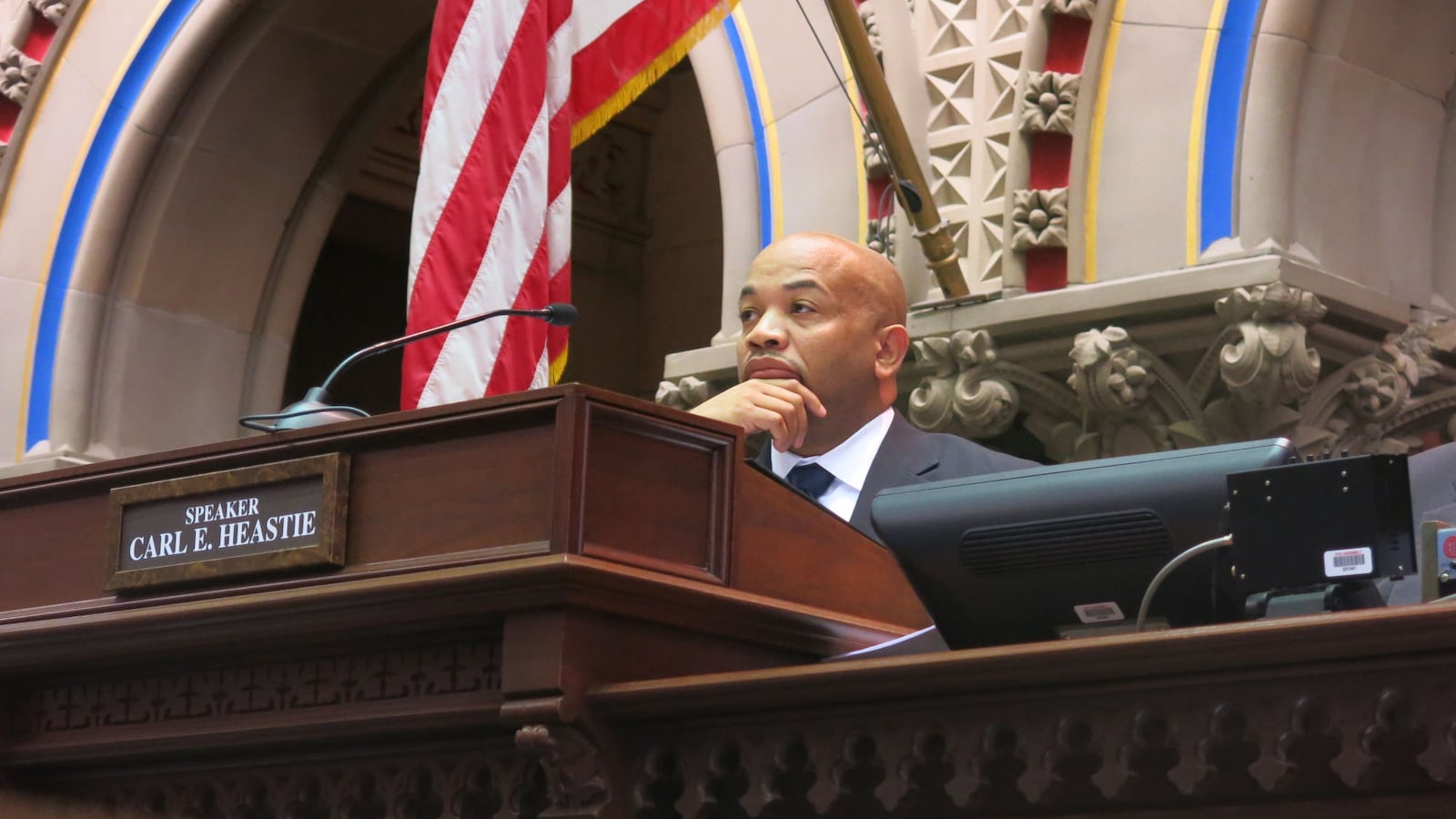Assembly leaders have agreed to support a three-year extension of mayoral control for New York City schools, offering a proposal Thursday that does not include any other changes to the city’s governance structure.
The proposal, which emerged after a closed-door meeting among Democrats in the Assembly on Tuesday, is a mixed bag for Mayor Bill de Blasio, who would get a shorter extension than he hoped but would avoid other tweaks that could diminish his power. The new expiration date for mayoral control would move to June 30, 2018 under the Assembly’s bill, which was sponsored by Speaker Carl Heastie, education committee chair Catherine Nolan, and Richard Gottfried.
The move signals that the city’s school governance, one of several education questions still facing lawmakers this legislative session, could be among the first to get settled. The three-year extension matches Gov. Andrew Cuomo’s proposal and drew praise from the de Blasio administration, a close ally to the Assembly. (The Assembly originally proposed a seven-year extension.)
Senate Republicans, who will need to sign off on the agreement, have stayed mum on the issue for most of the legislative session. That changed this week when new conference leader John Flanagan said he would support a mayoral control extension without specifying for how long.
Matthew Titone, an assemblyman from Staten Island, said keeping the law the same could avoid contentious negotiations at a time when both houses of the legislature have other priorities.
“It’s already in place,” said Titone, referring to the framework of mayoral control. “There’s nothing new.”
Mayoral control has been in place since 2002, but will expire in June unless state legislators reauthorize the law that dismantled the city’s 32 local school boards. Under the centralized system, the mayor was given the power to choose the schools chancellor, oversee the system’s $26 billion education budget, and set policies for the city’s 1,600 district schools. The law also created the Panel for Educational Policy, which signs off on many changes but is controlled by the mayor.
The law briefly expired in 2009, in part because lawmakers were haggling over small changes. Assembly Democrats said they did not want to open up the law to detailed negotiations this time to avoid a repeat of the confusion that followed, which included a short reappearance of the Board of Education and weeks of legal ambiguity.
The trade-off for de Blasio is a shorter renewal period than the one his predecessor received when lawmakers finally reached a deal on mayoral control six years ago. Titone said it allowed for a timely review of de Blasio’s program to improve struggling schools, which ends in 2017.
Earlier this year, de Blasio was so concerned about the status of mayoral control that he made it the primary focus of his lobbying efforts in Albany. The mayor asked legislators to make mayoral control permanent, saying that would ensure the stability of a system that had been proven to raise the achievement of city students. But his administration’s legislative priorities have since shifted to eliminating real estate tax breaks, something prolonged negotiations over mayoral control could distract from.
“We’re appreciative that both the Governor and the Assembly Democratic conference have registered their intent to see Mayoral Control extended,” city spokesman Wiley Norvell said, adding that the city believes that it should be extended permanently.
The Assembly’s proposal is likely to frustrate some advocates who believed the mayor has too much unchecked power over education policy. At forums held by Public Advocate Letitia James earlier this year, some raised the ideas of giving the city’s 32 Community Education Councils the ability to nix plans for schools to share space, taking contract oversight duties away from the Panel for Educational Policy, and putting more members on the panel who are independent of de Blasio.
James has yet to release policy recommendations from those forums, although a spokeswoman said they would be released next week. In a statement, James said “provisions that expand parental and community involvement,” but did not offer any specifics.


